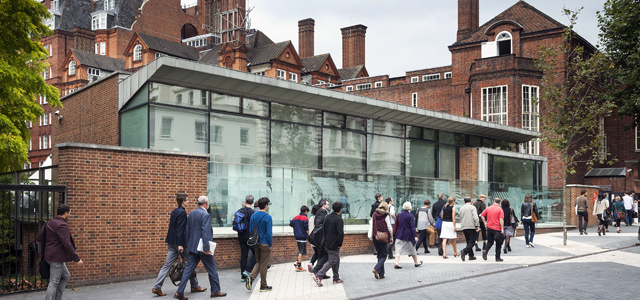
July 21, 2016, by Jake Hodder
Event: Historical Geographies of the Future
All three of the project team will be heading down to London this August for the RGS-IBG Annual International Conference. From discussions that have been emerging from the grant, Mike Heffernan and I are co-convening two sessions on histories of the future, see below.
Where Next? Historical Geographies of the Future
Royal Geographical Society, 1 Kensington Gore, London, Wednesday 31st August 2016, 14:40 – 18:30
How historical subjects have imagined their futures is crucial to understanding their pasts, and invariably reflects a wide range of geographical as well as historical imaginations. Likewise, many key areas of geographical enquiry (such as development, environment, geopolitics, imperialism, political economy) draw significance in part on their ability to lay claim to ideas of the future, implicitly or otherwise. Yet the role played by these collective speculations is seldom directly addressed and their contingent nature makes it difficult to reconstruct their full rhetorical strength.
Until recently, therefore, historical accounts of ‘the future’ have been predominantly shaped by ideas of the ‘distant future’. Distant in both the sense of time, ambiguously blending science and fiction (the future of ray guns and spaceships), and distant in the sense of ideals, realised or lost (the future of utopias and dystopias); but what of our other sense of the future? What has been the role played by the idea of the immediate ‘knowable future’? A future which attends more closely to possibility and prediction than to fantasy and utopia.
2016 marks a pertinent time to reflect on the relevance of these questions for geographers, as historians have also recently done (Engerman 2012; Rosenberg and Harding 2005), and ask where next? This year marks the 500th anniversary of the publication of Thomas More’s Utopia in Latin; and two related, and much anticipated, exhibitions are currently running at The Louvre in Paris (24 September 2015 – 4 January 2016) and Royal Museum of Fine Arts in Brussels (11 September 2015 – 24 January 2016) entitled A Brief History of the Future, based on the 2006 international bestseller by Jacques Attali of the same name. This session invites papers from across the discipline which examine ‘the future’ in its varied manifestations (political, personal, and technological) and may wish to engage some of the following questions:
- What are, and that have been, the geographies of the future – what geographical ideas have shaped future consciousness and from where?
- How have different historical moments or events fostered speculation of other futures?
- What is the relationship between experience and expectation, and how have ideas of the future shaped everyday lives?
- How have conceptions of the future intersected with political, scientific, economic or cultural ideas, or with other areas of geographical interest?
- What are the historical geographies of prediction and other ‘future-making’ practices – surveys, statistics, social trends, forecasting?
No comments yet, fill out a comment to be the first

Leave a Reply